In the realm of beauty and skincare, the allure of sleek metal cosmetic containers is undeniable – they exude a sense of luxury and sophistication. Yet beneath their shiny façade lies a contentious question that lingers in the minds of many beauty enthusiasts: are these metallic vessels potentially harmful to our delicate skin? As we delve into the world of cosmetics skincare, it’s crucial to uncover the truth behind metal cosmetic containers and their impact on our skin health. Imagine reaching for your favorite moisturizer or lipstick, only to ponder whether the chic metal packaging harbors hidden dangers. This blog post aims to shed light on the mysteries that surround metal cosmetic containers, exploring the potential risks they may pose to our skin. By navigating through scientific insights and expert opinions, we embark on a journey to demystify the implications of storing beauty products in these alluring yet enigmatic metallic casings. Join us as we unravel the complexities of beauty cosmetics packaging and unveil the truth behind the glittering facade of metal cosmetic containers.
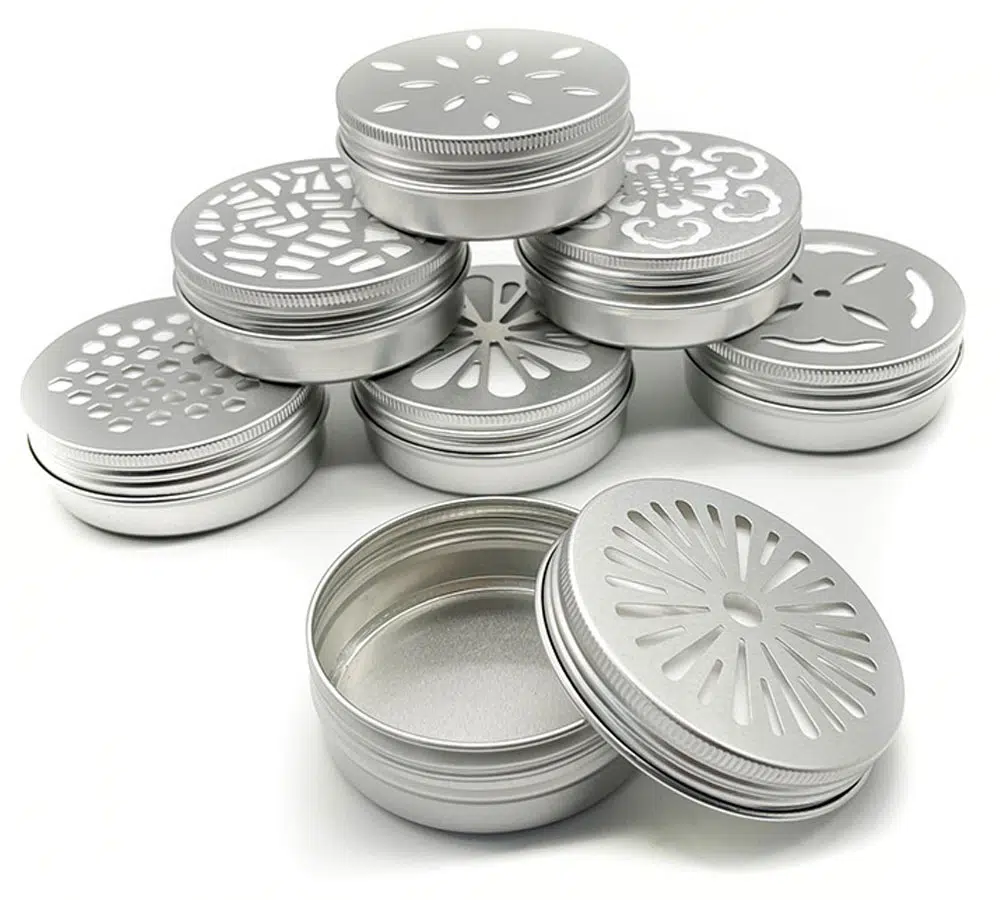
The Rise of Metal Cosmetic Containers in the Beauty Industry
Metal cosmetic containers have experienced a significant surge in popularity within the beauty industry in recent years. With their sleek and modern appearance, these containers have become a symbol of luxury and sophistication. But what exactly makes them so appealing to both brands and consumers alike?
One of the key reasons for the rise of metal cosmetic containers is their durability. Unlike plastic or glass packaging, metal containers are less prone to breakage, ensuring that your favorite beauty products remain intact even during travel or mishandling. This makes them an ideal choice for those who are constantly on the go.
In addition to their durability, metal cosmetic containers also offer superior protection against external factors such as light and air. Many beauty formulations are sensitive to these elements, which can degrade the quality and efficacy of the product over time. Metal packaging acts as a barrier, preventing harmful UV rays from penetrating and preserving the integrity of the cosmetics inside.
Furthermore, metal cosmetic containers provide a sense of luxury and exclusivity that other materials may not be able to achieve. The weightiness and cool touch of metal evoke a premium feel that resonates with consumers seeking high-end beauty experiences.
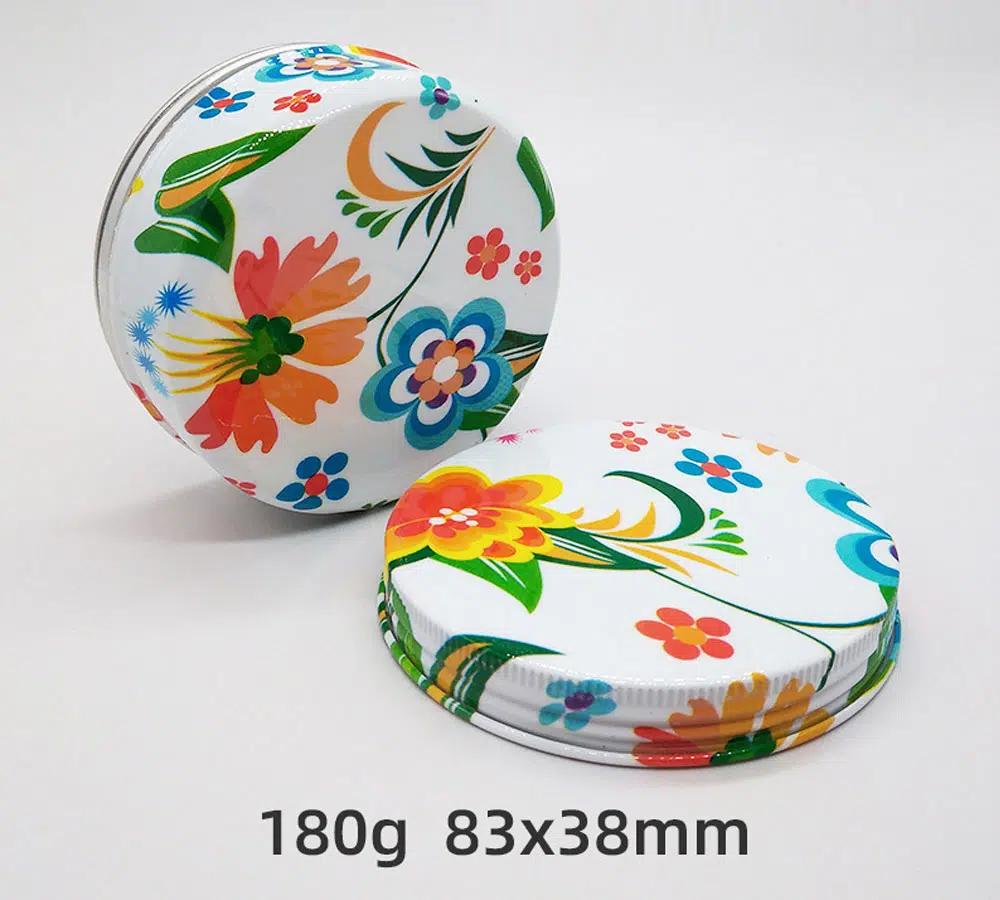
Understanding the Composition of Metal Cosmetic Containers
To truly comprehend the potential impact of metal cosmetic containers on our skin health, it is essential to understand their composition. The most commonly used metals in beauty cosmetics packaging include aluminum, stainless steel, and tinplate.
Aluminum is lightweight yet sturdy, making it a popular choice for various types of cosmetics packaging such as lip balm containers, care cream metal containers, eyeshadows containers, and foundation bottles. Stainless steel offers excellent corrosion resistance properties while being highly recyclable. Tinplate is commonly used for candle boxes and aerosol cans due to its ability to withstand pressure changes without compromising product integrity.
It is important to note that these metals undergo rigorous testing and quality control measures to ensure they meet safety standards. Regulatory bodies such as the Food and Drug Administration (FDA) closely monitor the use of metals in cosmetic packaging to protect consumer health.
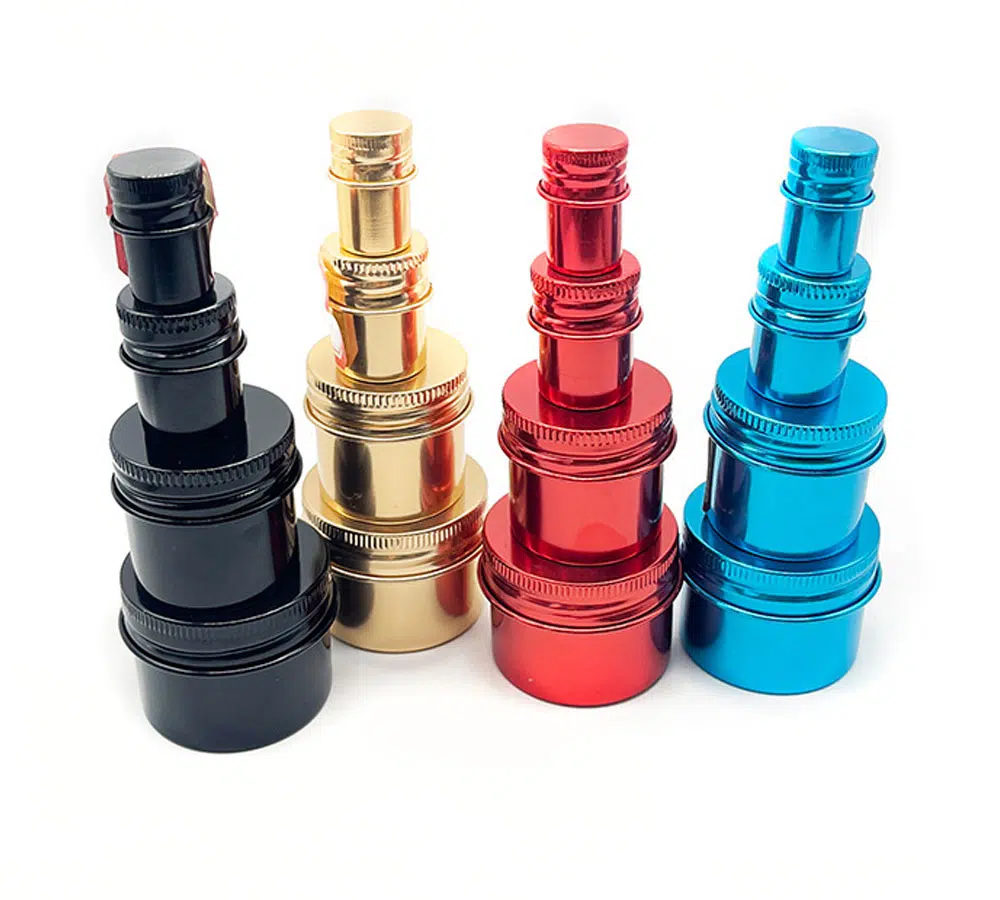
Potential Chemical Reactions Between Metal and Cosmetic Formulations
One concern surrounding metal cosmetic containers is the potential for chemical reactions between the metal and the cosmetic formulations. While rare, certain ingredients in cosmetics can react with metals, leading to changes in product color, texture, or even stability.
For example, acidic or alkaline formulas may cause corrosion or discoloration when in contact with certain metals. However, it’s important to note that extensive research and testing are conducted by manufacturers to ensure compatibility between the chosen metal and cosmetic formulation.
In most cases, metal cosmetic containers are lined with protective coatings or barriers such as lacquers or food-grade epoxy resins. These coatings act as a safeguard against any potential interactions between the metal and cosmetics, providing an additional layer of protection for both the product and the consumer.
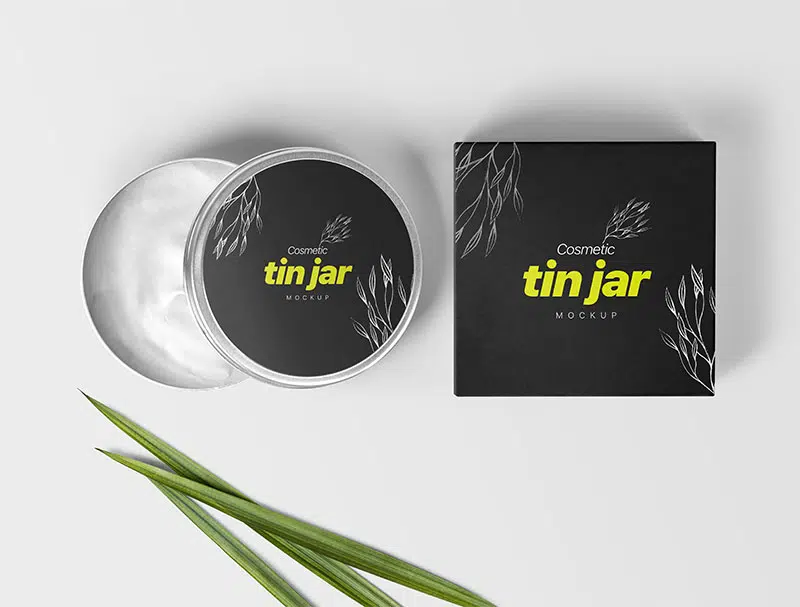
Impact of Metal Containers on Product Freshness and Efficacy
The freshness and efficacy of beauty products are crucial factors that determine their overall performance. Metal cosmetic containers play a significant role in preserving these qualities by shielding the contents from external elements that can compromise their integrity.
As mentioned earlier, metal packaging acts as a barrier against light, preventing harmful UV rays from degrading sensitive ingredients. Additionally, metals have excellent sealing properties that help maintain product freshness by minimizing exposure to air. This is particularly important for skincare products containing antioxidants or other oxygen-sensitive ingredients.
The ability of metal containers to maintain product freshness extends shelf life while ensuring that consumers can enjoy the full benefits of their favorite cosmetics. This is especially beneficial for products that have a longer lifespan, such as powdered foundations or eyeshadows.
Allergies and Skin Sensitivities: Are Metal Containers a Culprit?
Concerns about allergies and skin sensitivities have led some individuals to question whether metal cosmetic containers could be a potential culprit. While certain individuals can have sensitivities to metals such as nickel, the risk of an allergic reaction from metal packaging is generally low.
Regulatory bodies require manufacturers to comply with strict guidelines regarding the use of metals in cosmetic packaging. This includes limiting the concentration of certain metals known to cause allergies, such as nickel, to levels deemed safe for consumer use.
Furthermore, the protective coatings applied to metal cosmetic containers act as an additional barrier between the metal and the skin, minimizing direct contact and reducing the likelihood of any adverse reactions.
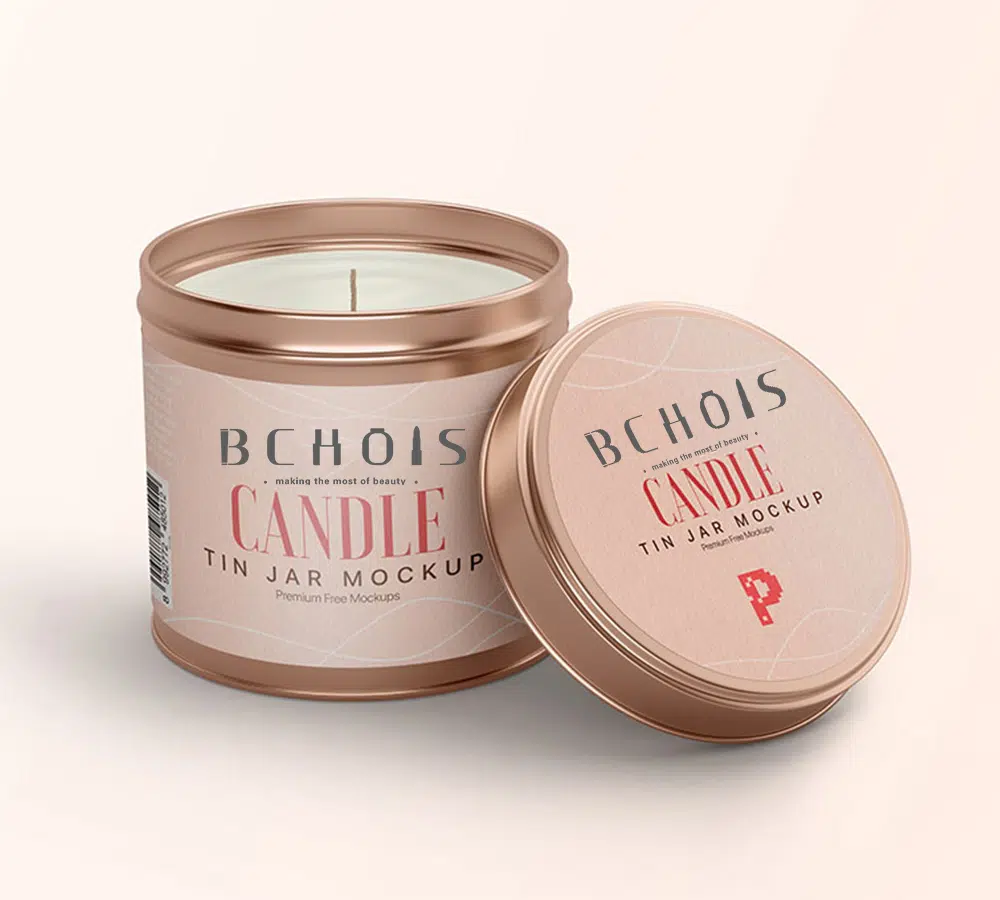
Environmental Considerations: Sustainability of Metal Packaging
In an era where sustainability is at the forefront of consumer consciousness, it’s important to consider the environmental impact of different packaging materials. Metal cosmetic containers offer several advantages in terms of sustainability.
Firstly, metals are highly recyclable materials. Unlike plastic packaging that often ends up in landfills or oceans, metal containers can be recycled repeatedly without losing their quality or properties. This reduces waste and minimizes the carbon footprint associated with beauty products.
Secondly, many metals used in cosmetic packaging are sourced from recycled materials or obtained through environmentally responsible mining practices. This further contributes to reducing their overall environmental impact.
Lastly, metal cosmetic containers have a longer lifespan compared to other types of packaging materials. Their durability ensures that they can be reused or repurposed even after the original product has been consumed. This promotes a circular economy and reduces the need for constant production of new packaging.
Expert Recommendations for Safe Usage of Metal Cosmetic Containers
While metal cosmetic containers are generally considered safe for use, it is important to follow expert recommendations to ensure their proper usage and minimize any potential risks.
Firstly, it is advisable to store metal-packaged cosmetics in a cool and dry environment. Excessive heat or humidity can potentially compromise the integrity of both the packaging and the product inside.
Secondly, avoid scratching or damaging the protective coatings on metal containers. These coatings play a crucial role in preventing any potential interactions between the metal and cosmetics.
Lastly, if you have known allergies or sensitivities to certain metals, it is recommended to consult with a dermatologist before using products packaged in metal containers. They can provide personalized advice based on your specific needs and help you make informed decisions about your skincare routine.
Alternatives to Metal Cosmetic Containers in the Market
While metal cosmetic containers offer numerous benefits, they may not be suitable for everyone’s preferences or needs. Fortunately, there are alternative packaging materials available in the market that cater to different consumer demands.
Glass packaging provides an elegant and luxurious feel while being recyclable and non-reactive with most cosmetic formulations. Plastic packaging offers affordability and versatility but may not have the same level of durability as metal or glass.
Bamboo packaging has gained popularity due to its sustainable properties and natural aesthetic appeal. It is often used for skincare products such as creams or serums.
The choice of packaging material ultimately depends on individual preferences, brand values, and specific product requirements. Brands are increasingly exploring innovative solutions that combine functionality with sustainability to meet consumer expectations.
Debunking Myths and Misconceptions Surrounding Metal Packaging
Despite the numerous benefits and safety measures associated with metal cosmetic containers, there are still some myths and misconceptions that persist.
One common misconception is that all metals used in cosmetic packaging are harmful to the skin. As mentioned earlier, regulatory bodies closely monitor the use of metals in cosmetics to ensure consumer safety. The risk of adverse reactions from metal packaging is generally low, especially when following proper usage guidelines.
Another myth is that metal packaging always leads to product contamination. In reality, metal containers undergo rigorous testing and quality control measures to ensure they meet safety standards. The protective coatings applied to these containers act as an additional safeguard against any potential interactions between the metal and cosmetics.
Concluding Thoughts: Balancing Beauty and Safety in Your Cosmetic Choices
Metal cosmetic skin care containers have become increasingly popular within the beauty industry due to their durability, protection properties, and luxurious appeal. While concerns about potential risks exist, extensive testing and quality control measures ensure their safety for consumer use.
Consumers need to make informed choices based on their individual preferences and needs. If you have known allergies or sensitivities to certain metals, consulting with a dermatologist can provide personalized advice.
Ultimately, balancing beauty and safety requires a holistic approach that considers various factors such as product freshness, environmental impact, and personal values. By understanding the truth behind metal cosmetic containers, you can confidently embrace their allure while prioritizing your skin health.